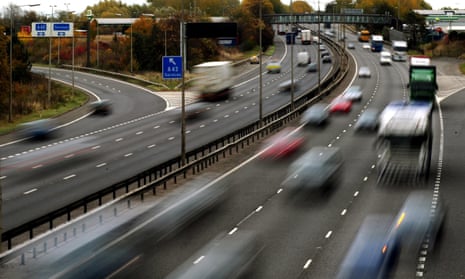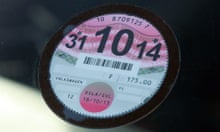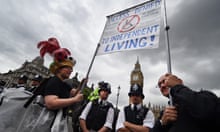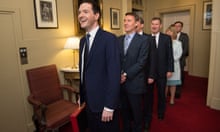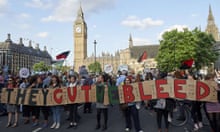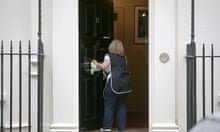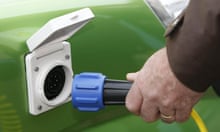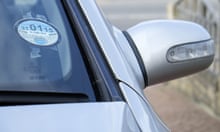Tax on new vehicles is to be overhauled by removing exemptions for low-emission cars, with all the proceeds going back into roadbuilding and maintenance, the chancellor has announced.
George Osborne said the current system of waiving or drastically reducing tax for greener vehicles “isn’t sustainable and it isn’t fair”.
While vehicle excise duty had been banded to encourage take-up of cleaner cars, Osborne said that by 2017 over three-quarters of new cars would be low-emission.
The tax reform would see duty in the first year paid according to emissions, but then in three bands, with 95% of cars taxed at a “standard” band of £140 a year.
Otherwise, claimed Osborne: “If you can only afford an old second car you have to pay more tax … only a Labour government could have designed something so regressive.”
The chancellor said the move would raise the same amount of revenue but it would be secure for the long-term.
He also promised to “return this to the use for which it was originally intended”, by creating a new road fund. “Every single penny will go into the sustained investment our roads so badly need. Tax paid on people’s cars will be spent on the roads they drive on.”
Ringfencing of vehicle excise duty for roads was abolished in 1936.
Osborne said he would also continue to freeze fuel duty this year, as he did throughout the last parliament – although motoring lobby groups had been hoping for a possible cut.
Additionally, he promised to consult on extending the deadline for new cars and motorbikes to have MoT tests from three to four years.
But savings from MoTs may be offset for motorists by higher car insurance costs, as the chancellor announced that from November 2015 insurance premium tax would rise from 6% to 9.5%.
